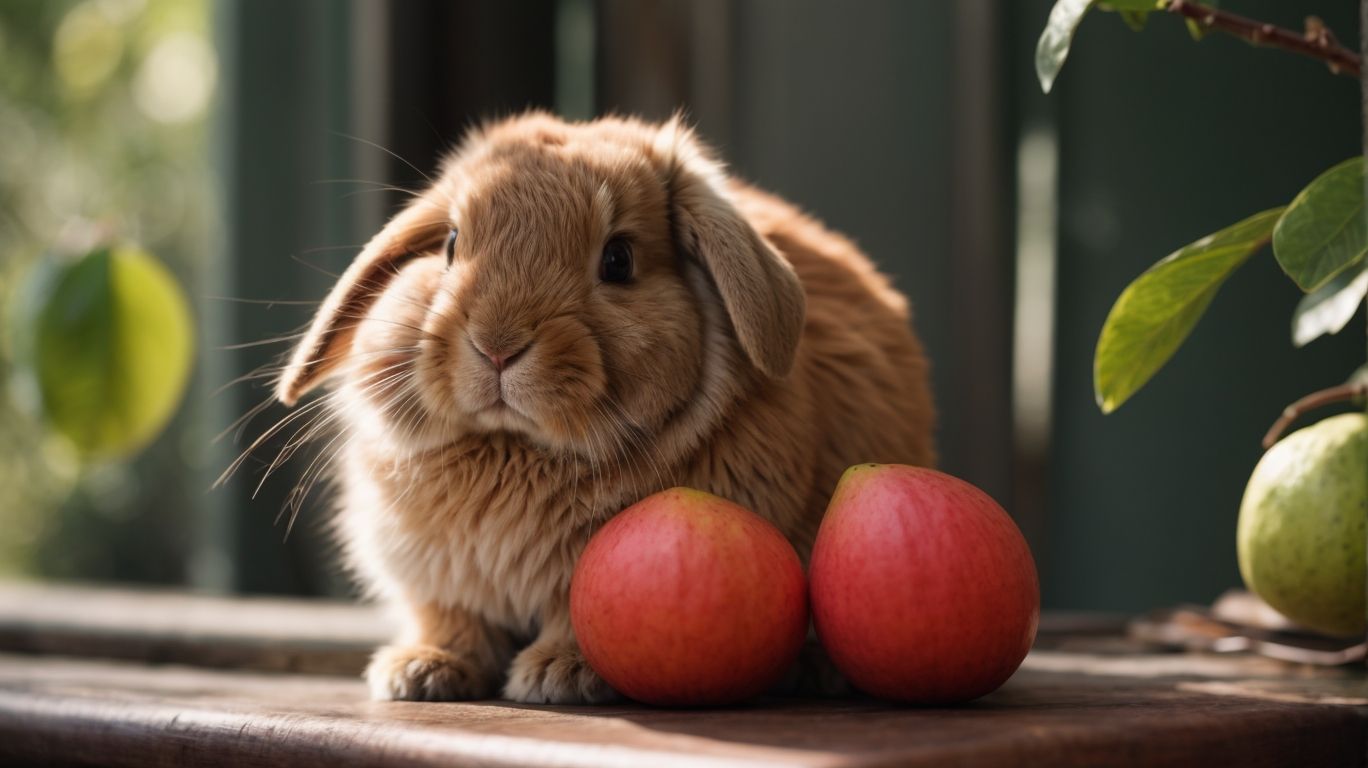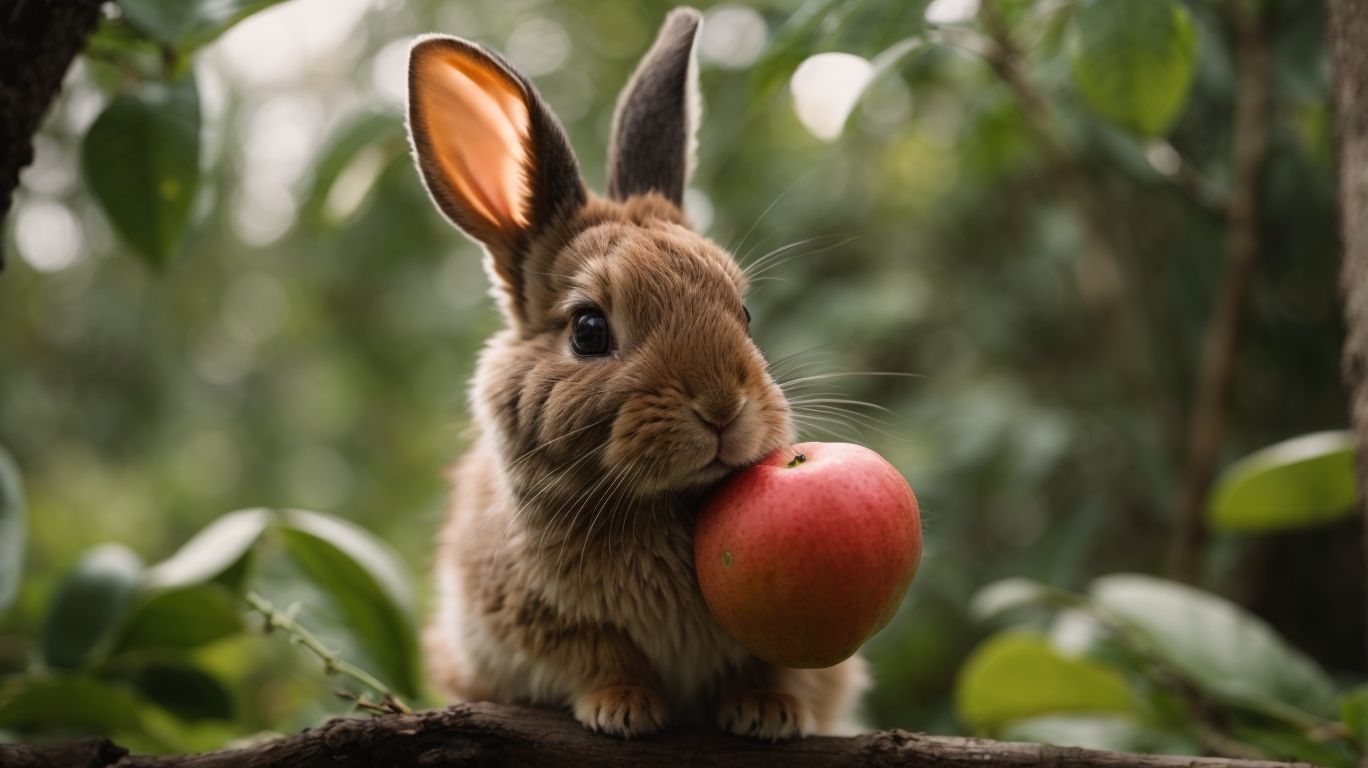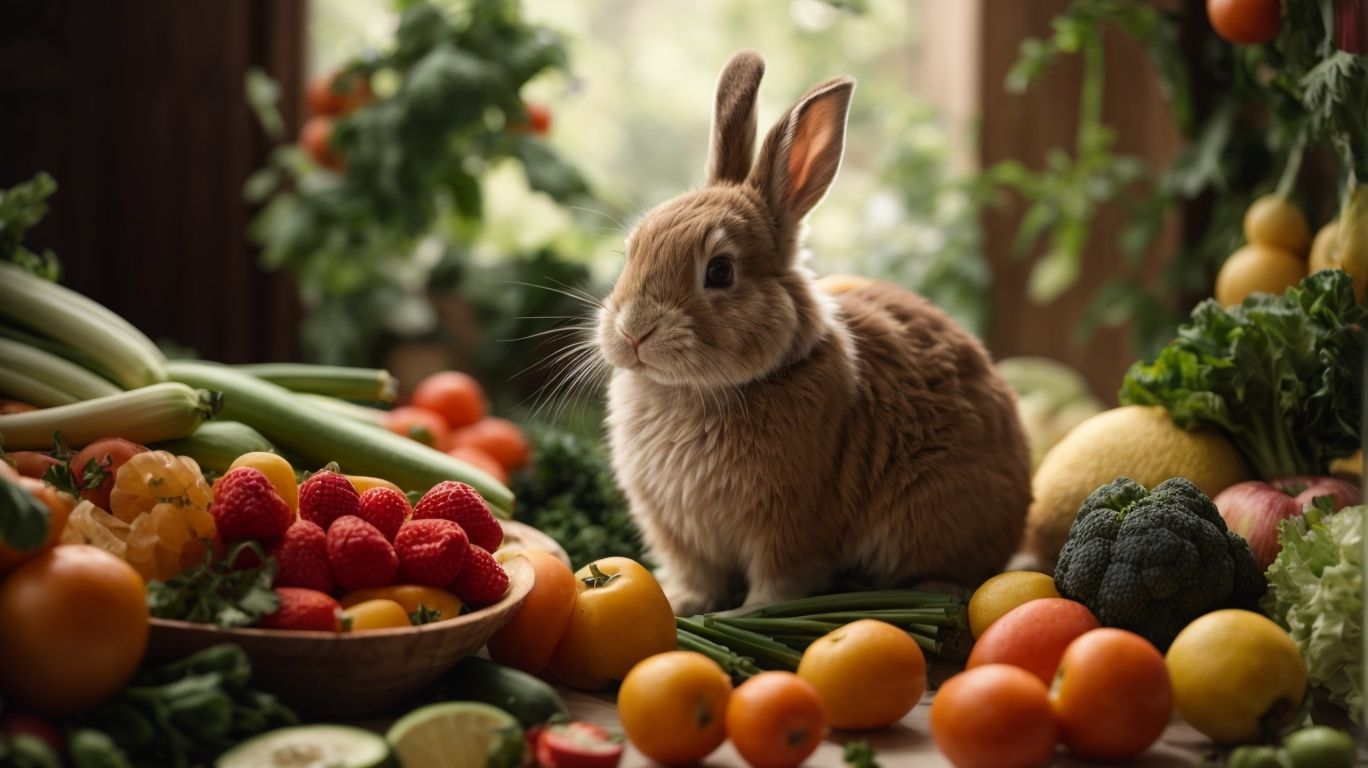Can Bunnies Eat Guava
Are you wondering if bunnies can enjoy the delicious taste of guava?
In this article, we will explore the nutritional benefits of guava for bunnies, how much guava they should eat, and the potential risks of feeding them peanuts this fruit.
We will also discuss other fruits that are safe for bunnies, the essential nutrients they need in their diet, the best types of hay and vegetables for them, and suitable pellets.
Discover tips on how to introduce new foods to bunnies and find out why guava can be a healthy treat for your furry friends!
Key Takeaways:
Can Bunnies Eat Guava?
Credits: Bunnyeat.Com – Gabriel Lewis
Guava is a popular fruit, but can bunnies eat guava?
Bunnies have a delicate digestive system that requires a specialized diet rich in fiber, vitamins, and minerals. The good news is that guava can be a suitable occasional treat for rabbits due to its high fiber content and essential nutrients. It’s crucial to offer guava in moderation and as part of a balanced diet to prevent any digestive upsets. The fiber in guava can help support the digestive health of rabbits and aid in preventing issues like gastrointestinal stasis, a potentially serious condition in rabbits.
What are the Nutritional Benefits of Guava for Bunnies?
Guava offers a range of nutritional benefits that can positively impact the health of bunnies.
One notable aspect of guava is its high vitamin C content, vital for boosting the immune system of rabbits and promoting overall health. Guava is rich in vitamin A, crucial for vision and skin health. The fruit also contains essential minerals like potassium, manganese, and magnesium, supporting proper body functions and muscle health in bunnies. The fiber content in guava aids in digestion, prevents gastrointestinal issues, and helps maintain a healthy weight.
How Much Guava Should Bunnies Eat?
Determining the appropriate quantity of guava for bunnies is crucial for maintaining their health.
Guava, being a nutrient-rich fruit, can be a healthy addition to a rabbit’s diet. When feeding guava to rabbits, it is recommended to provide it in small portions due to its high sugar content. A suitable portion size for guava is approximately a quarter of a slice per serving. To avoid digestive issues, it is essential to introduce guava gradually into rabbits’ diet and monitor their response to the fruit.
- Frequency is also crucial when it comes to feeding guava to bunnies. It is advisable to offer guava as an occasional treat rather than a staple part of their diet. Once or twice a week is generally sufficient to prevent overfeeding and potential health problems.
What are the Potential Risks of Feeding Guava to Bunnies?
While guava has benefits, there are potential risks associated with feeding it to bunnies.
One of the main concerns with guava in rabbit diets is the sugar content, which can lead to various health issues. Rabbits have sensitive digestive systems, and consuming too much sugary fruit like guava can disrupt the balance of their gut flora, causing digestive problems such as diarrhea or bloating. Excessive guava intake may also result in obesity in rabbits, putting them at risk of other related health complications.
What Other Fruits Can Bunnies Eat?
Plus guava, there are other fruits that bunnies can safely enjoy.
When considering fruits for rabbits, it is crucial to select options that are not only safe but also provide beneficial nutrients. Some excellent choices include papaya, blueberries, and raspberries. These fruits are low in sugar content compared to others, making them suitable for rabbits. High sugar intake can lead to obesity and gastrointestinal issues in bunnies, so it’s vital to offer fruits in moderation. These options are packed with essential vitamins and minerals that contribute to your bunny’s overall health and well-being.
What Should be the Main Diet of Bunnies?
Credits: Bunnyeat.Com – Keith Torres
Understanding if bunnies can eat leaves is essential for their overall health and well-being.
Rabbits need a diet rich in fiber, which aids in maintaining proper digestion and preventing issues like gastrointestinal stasis. Key components of a rabbit’s diet include hay, vegetables, and a small amount of pellets. Fiber supports the digestive system of rabbits by promoting healthy gut flora and preventing hairballs. Nutrients such as vitamin A, vitamin E, and calcium are essential for their growth and overall well-being. It’s crucial to provide a balanced diet to ensure that rabbits stay healthy and active.
What are the Essential Nutrients for Bunnies?
Essential nutrients play a vital role in maintaining the health of rabbits.
Rabbits require a balanced diet rich in vitamins, essential minerals, and fiber to thrive. Vitamins such as A, D, and E are crucial for overall health and function. Minerals like calcium, phosphorus, and potassium support bone strength and metabolic processes. Fiber, found in hay and leafy greens, aids in digestion and prevents gastrointestinal issues. Ensuring your rabbits have access to a diverse range of fresh vegetables and high-quality pellets will help meet their nutritional needs and promote optimal health.
What Types of Hay are Best for Bunnies?
Choosing the right type of hay is essential for meeting the dietary needs of bunnies.
Regarding hay options for rabbits, there are a variety of choices to consider. Grass hay, such as Timothy hay, orchard grass, and Bermuda grass, is an excellent source of fiber essential for their digestive health. These hays provide the necessary roughage that aids in proper digestion and helps prevent gastrointestinal issues.
Alfalfa hay, on the other hand, is a higher protein option suitable for young, growing rabbits due to its higher caloric content. It should be limited for adult rabbits as it might lead to obesity. Hay pellets are another convenient option that can supplement hay consumption, but they should not replace fresh hay entirely.
What Types of Vegetables are Safe for Bunnies?
Vegetables are an important part of a rabbit’s diet, but which ones are safe?
When considering vegetables for rabbits, it is crucial to choose options that are safe and beneficial for their health. Some of the safest vegetables include leafy greens like romaine lettuce, kale, and spinach. These vegetables are not only low in calories but also packed with essential nutrients such as fiber, vitamins A, C, and K.
Vegetables like bell peppers, carrots, and broccoli are great choices that offer a variety of vitamins and minerals to support the overall well-being of your bunny.
What Types of Pellets are Suitable for Bunnies?
Pellets are a common dietary component for rabbits, but choosing the right ones is crucial.
When selecting pellets for your rabbit, it’s essential to focus on their nutrient requirements. Opt for pellets that are high in fiber, as fiber plays a vital role in maintaining a healthy digestive system for rabbits.
Ensure that the pellets contain a balanced mix of vitamins and minerals to support overall health. Not only do pellets provide essential nutrients, but they also help with dental health by encouraging natural chewing behavior. Learn more about bunnies eating aloe vera to ensure their diet is safe and healthy.
By including pellets in your rabbit’s diet, you are promoting proper digestion and ensuring they receive the necessary nutrients for optimal well-being.
How to Properly Introduce New Foods to Bunnies?
Introducing new foods to bunnies requires a gradual and careful approach.
Rabbits have sensitive digestive systems, so any dietary changes should be introduced slowly to avoid causing disruptions. Begin by offering a small amount of the new food and observe how your bunny reacts. Experimentation is key in determining their tolerance and preferences. Over time, gradually increase the quantity of the new food while monitoring for any signs of digestive upset such as diarrhea or decreased appetite. Remember to maintain a balanced diet and not rely solely on the new food item. A diverse diet that includes hay, fresh vegetables, and pellets is crucial for your bunny’s overall health.
Conclusion: Guava Can Be a Healthy Treat for Bunnies
In conclusion, guava can serve as a nutritious and tasty treat for bunnies when included in moderation.
Can Bunnies Eat Rice are packed with essential nutrients like vitamin C, fiber, and antioxidants, which can contribute to a rabbit’s overall health. It is important to note that due to the high sugar content in guavas, excess consumption can lead to gastrointestinal issues and obesity in rabbits. Including small portions of guava as an occasional treat can provide various health benefits, such as boosting the immune system and promoting digestion.



